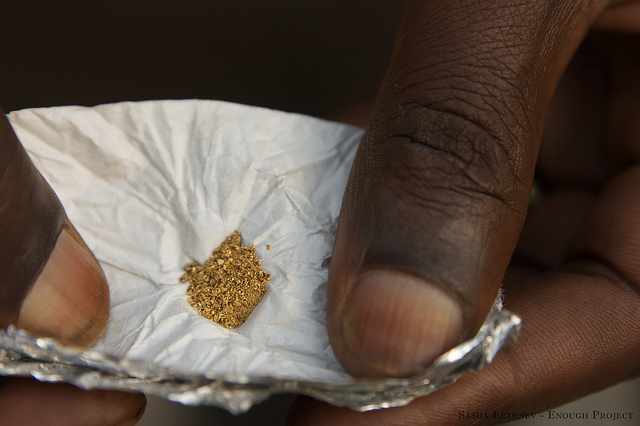This op-Ed was originally published on TheGuardian.com.
US legislation to encourage transparency in the trade of precious resources might mean a loss of income for Congo's artisanal miners, but the alternative is prolonged conflict
A string of recent media comments have argued that a piece of US legislation aimed at ending conflict in the Democratic Republic of Congo (DRC) actually hurts civilians. Pieces in the Wall Street Journal, Christian Science Monitor and the New York Times all make the same point – that requiring companies to identify the source of their minerals will drive investment away from the DRC and keep people poor. It is a familiar argument, often made with regard to economic sanctions. It is also simplistic and wrong.
Critics say that, despite good intentions, the Wall Street Reform and Consumer Protection Act, popularly known as the Dodd-Frank Act, harms the poorest artisanal miners in the Congo. The relevant section of the Dodd-Frank Act (pdf) requires companies purchasing minerals from Congo to disclose measures taken to exercise due diligence on the sources and supply chains of specific resources associated with conflict in the region.
As with diamonds from Sierra Leone, Liberia and Angola in the 1990s, minerals from the DRC provide revenue for armed groups to buy weapons to continue fighting. Eastern Congo, where these minerals are found, is an area where murders, massacres, rapes, and other acts of gender-based violence are widespread. According to Global Witness, companies from around the world, including China and Malaysia, are working to extract the region's precious resources. To gain access, they must deal with commanders accused of ordering mass atrocities. This exposes them to potential criminal liability and complicity in rights violations.
Critics rightly contend that requiring companies to demonstrate they are not contributing to conflict will result, at least in the short term, in some leaving the DRC to source minerals elsewhere. When that happens, artisanal miners lose income and, without alternative employment opportunities, many will be pushed deeper into poverty.
But Global Witness and the Enough Project, which have spearheaded international campaigns against sourcing minerals from the DRC, aren't naive. They are aware of the impact of such measures on artisanal miners, but also see a greater evil: prolonged conflict. The problem is that the role of natural resource exploitation in the ongoing crises in the eastern DRC is complex and defies a quick fix; it is a reminder that resource governance is an enduring challenge in fragile states.
Should similar measures – the ethical sourcing of cocoa from Ivory Coast, sugarcane from Caribbean islands and South America, diamonds from Sierra Leone, and cotton from Uzbekistan – also be given up where they impact negatively on local job opportunities? Restrictions on conflict minerals alone won't end unrest in the DRC. But not having any restrictions on products known to fuel conflict, ostensibly to preserve livelihoods for the country's people, won't make matters better, either.
Instead, for the Dodd-Frank Act to work, we need a more comprehensive, global approach. Examples of initial, co-ordinated efforts include the Organisation for Economic Co-operation and Development's work to help companies procure minerals responsibly. There are also initiatives by the World Gold Council and jewellers' associations to eliminate links with conflict. Such campaigns suggest major actors are eager to support serious measures. But greater co-ordination is still needed.
The challenge for companies working in the DRC and other difficult environments is to develop measures which ensure they source from entities not party to conflict. It would be a shame if they were to shirk that responsibility now the UN Framework for Business and Human Rights and Guiding Principles is in place as an authoritative basis for government and corporate action at all levels.
For the international community, meanwhile, the task is to establish conditions in which economic activity that promotes peace and sustainable development can flourish. That means providing more resources for peacekeeping, preventing the flow of illegal arms, and prosecuting war criminals.
Governments cannot outsource those critical measures to business. Business cannot avoid calls for due diligence. Both must act to improve the lives of people in the DRC.
Photo credit: Flickr-EnoughProject





























How should businesses respond to an age of conflict and uncertainty?
As 2024 began, European Commission President Ursula von der Leyen aptly summed up our deeply worrying collective moment. As she put it, speaking at the annual World Economic Forum in Switzerland, we are moving through “an era of conflict and...
26 March 2024 | Commentary
Commentary by Scott Jerbi, Senior Advisor, Policy & Outreach, IHRB